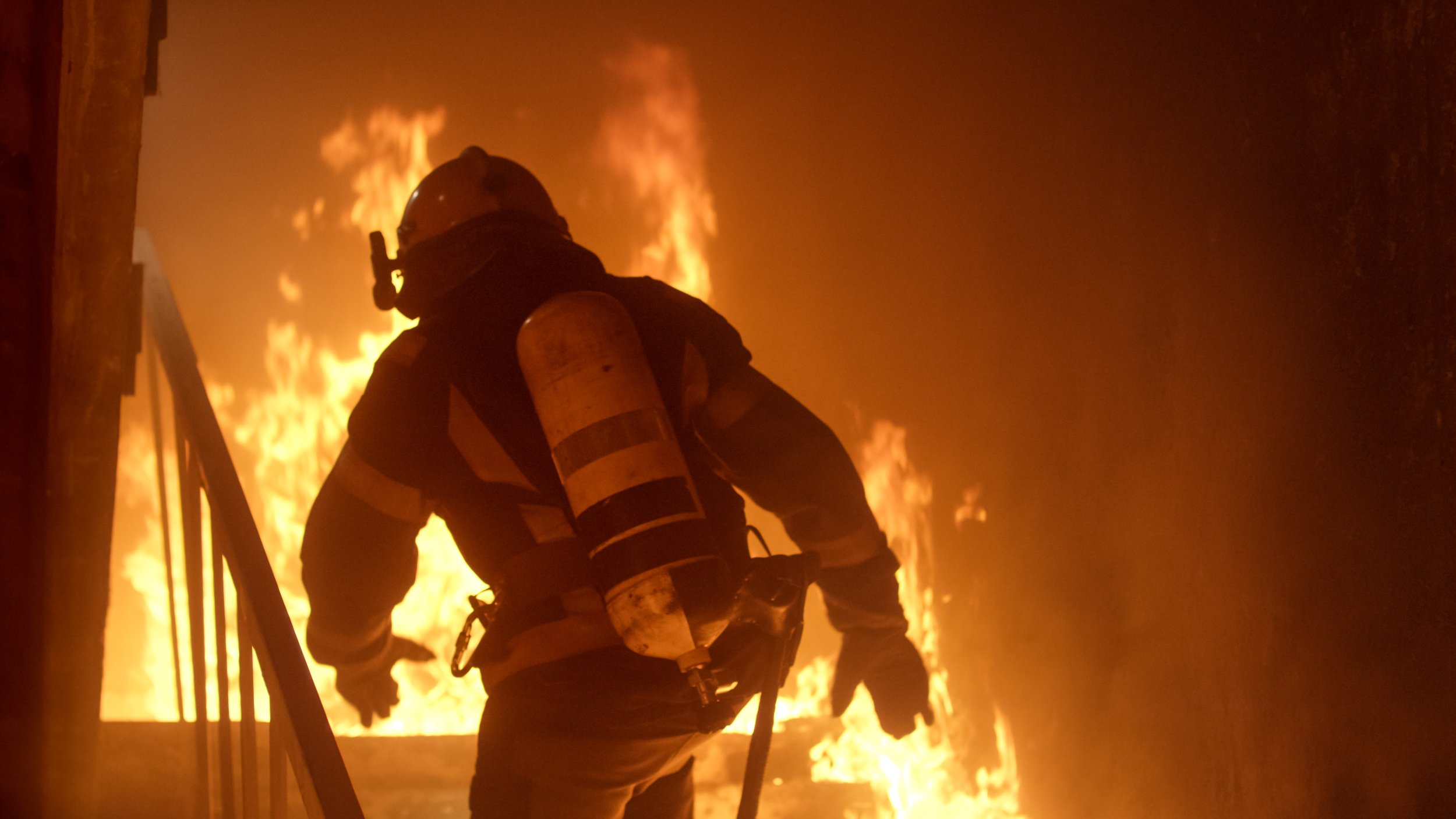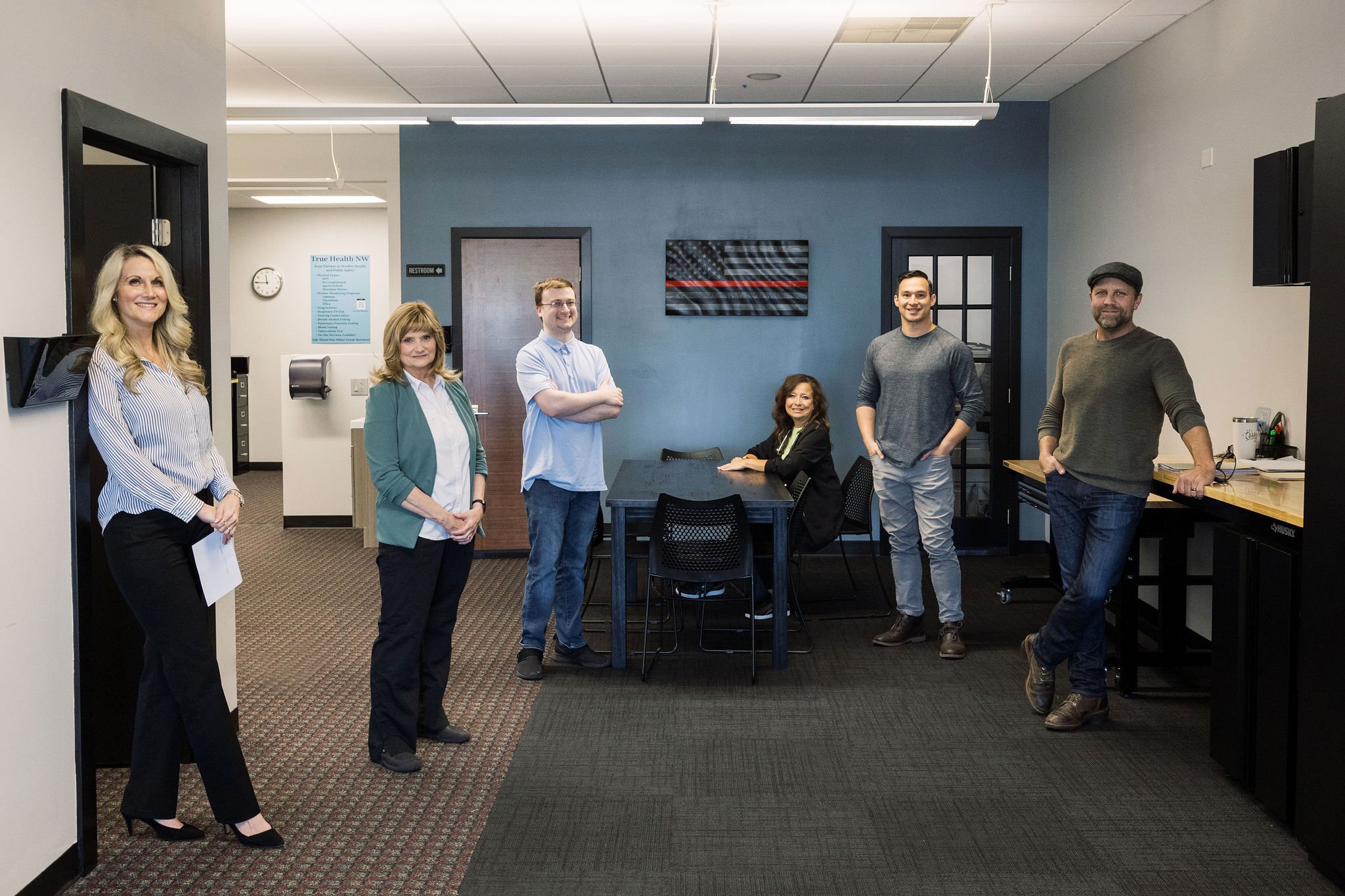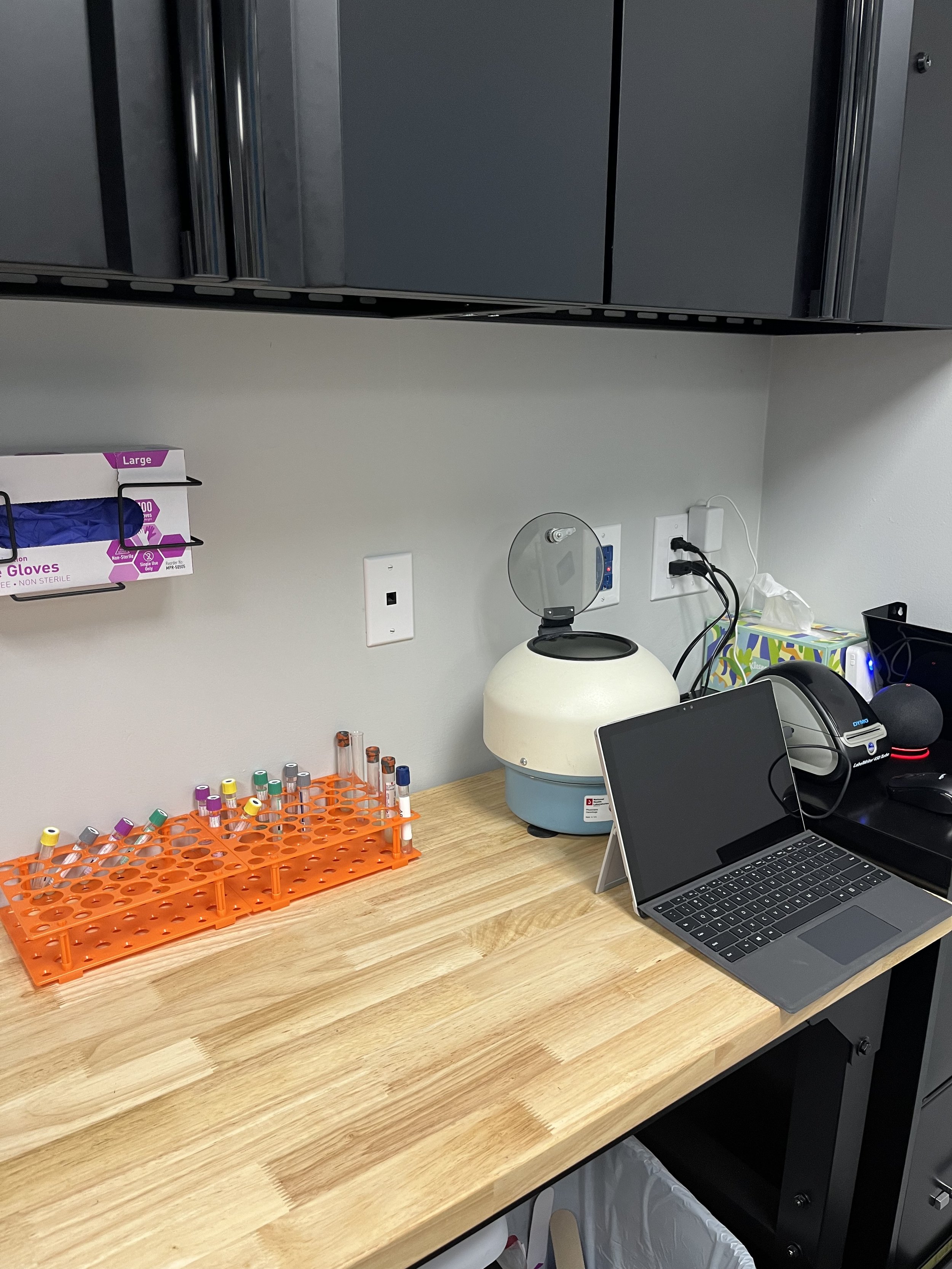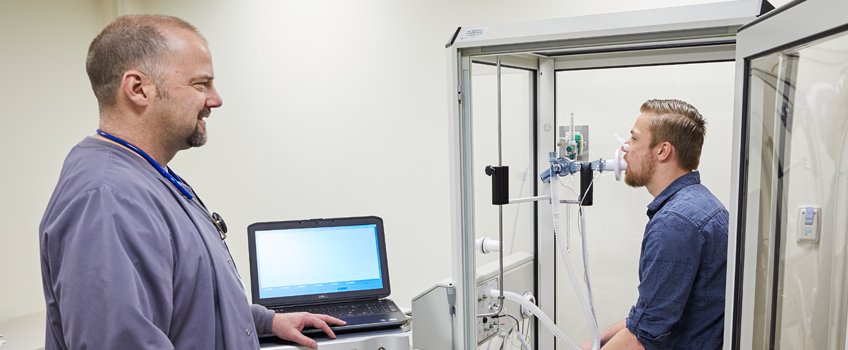
Firefighter Physicals Spokane WA
NFPA 1582 Compliant Firefighter Physical Testing
To Determine the Health and Fitness of Departments
Throughout the Inland Pacific Northwest
Shielding Workers from Harm.
Protecting Businesses from Risk.
Firefighting is a demanding profession that requires individuals to put their lives on the line to protect others. As such, it is crucial for firefighters to undergo regular physical assessments to ensure they are capable of wearing the gear, enduring through emergencies, and making decisions in extreme situations. Firefighter physicals are comprehensive examinations help identify any potential health risks or conditions that may impact a potential firefighter's performance on the job.
At Guardian Health, we understand the physical demands of firefighting, and making sure each individual is up to the task is our highest priority. As a leading provider of specialized occupational health services, we offer comprehensive firefighter physicals for fire fighters in Spokane, CdA, and the surrounding areas, which includes steps such as blood work, chest x-rays, cardiology tests, hearing tests, pulmonary tests, internal physical exams, and strength and conditioning exams.
Choosing the Right Place to Get your Firefighter Physicals in Spokane
While firefighter physicals are mandatory, dispatch needs to be certain that whoever they trust to examine their firefighters will get the job done. The best occupational medicine clinics not only have great testing policies, but respects the time and energy of their test subjects.
Guardian Health provides thorough evaluations that take into account the specific requirements of firefighting, ensuring that firefighters are fit for duty and can perform their job safely.
Unfortunately, traditional healthcare centers in the city of Spokane are rarely the answer. The apparatus of these establishments were created to serve literally everyone in the community. While this is important, it also means they lack the the expertise or resources to conduct comprehensive evaluations tailored to the specific needs of firefighters. This can result in incomplete assessments and a lack of occupational health support. And if that wasn't enough, Firefighter physicals are never as urgent as another patient in pain. As a result, it is common for them to be skipped on the queue, and the scheduled test time to be pushed back one, two, and sometimes three hours.
By choosing a specialized provider like Guardian Health, firefighters can avoid long wait times and receive timely evaluations, comprehensive physical assessments for their specific needs.
We’re centrally located between Spokane and CDA, right off I-90.
Workers never need to worry about stopping by at the wrong time; we have snacks and beverages, an excellent vacuum for dusty boots, and plenty of parking for large trucks!
NFPA 1582
NFPA stands for National Fire Protection Association, which was established to safeguard firefighters' well-being. Their suggestions make a major impact on government guidelines for firefighter standards, health, and safety. It is the authority in Spokane and Norther Idaho and responsible for government restrictions on fireman physical fitness.
"NFPA 1582" is the "Standard on Comprehensive Occupational Medical Program for Fire Departments". It was established in 1985 and gets recent updates every year, refining the medical and physical ability tests needed to become or remain a firefighter. Sometimes other public safety agency partners add additional requirements, though this is rare.
The standards detail how an occupational medicine can determine if a fire fighter can appropriately protect people and property. It serves as a vital benchmark for maintaining the physical well-being of firefighters across Washington state and beyond. By adhering to NFPA 1582, Spokane Fire Department and other agencies prioritize the health and safety of their firefighting teams, enhancing overall operational readiness and response capabilities.
The Role of Physical Fitness in Firefighting
Physical fitness in firefighting is like the foundation of a sturdy home; it's ESSENTIAL and CRUCIAL. Firefighting is a dangerous, physical job where every physical limitation can mean the difference between life and death, both for the firewoman, their fellow crew, and whoever they may be attempting to save. Firefighters face physically demanding tasks regularly, from lifting heavy equipment and navigating treacherous terrains. Appropriate strength and stamina isn't just an asset; it's a lifeline in the world of firefighting.
But being physically fit isn't enough; firefighters face various health risks due to the nature of their work. Exposure to smoke and hazardous materials can lead to respiratory issues and long-term lung damage. Additionally, the physical strain of firefighting activities can result in musculoskeletal injuries, especially to the lower back. Mental health concerns like post-traumatic stress disorder (PTSD) are also prevalent among firefighters, and prioritizing regular mental health check-ups comes with the territory.
What Makes Guardian Health
the Best Choice For Your Firefighter Physical?
-

Affordable Costs
Our testing fees are 22% cheaper than local competition
-

Quick Service
Your employees will spend minutes, not hours, before they are back out the door.
-

Thorough Testing
We adhere to higher health standards than large corporations to ensure nothing gets missed
-

Welcoming Atmosphere
Coffee, snacks, and no-fuss facility perfect for workers at the end of their shift.
-

Personalized Care
Should anything concerning appear in the tests, we have the facilities to set you on the right path.
-

Timely Results
The majority of our clients recieve their results between 3-5 days. For certain tests, you may have to wait for 7 days.

The Guardian Health Approach to Firefighter Physicals
Guardian Health takes a comprehensive and personalized approach to firefighter physicals. With state-of-the-art facilities, experienced professionals, and a commitment to occupational health, Guardian Health is a trusted provider of firefighter physicals and cpat tests in Spokane. Here is how we do it…
-
First things first... show up on time for your event date! Most of the paperwork should be filled out ahead of time by your station, but you'll still need to fill out some basic information. On that note, you'll beed to bring a valid driver's license so we can confirm your identity. Be sure you know your background, because we'll ask for a "personal history statement" (your health in the past). And that's it... no written exam for this test!
-
Step 1 of our comprehensive firefighter physicals is diagnostic blood work. Some find trace effects of metals, others use a gel to separate plasma from white blood cells. By analyzing key indicators in your blood, we can tailor our health monitoring and support to ensure you are in top physical condition to meet the demands of the job.
-
One important note... for your blood test to be effective, you need to have been fasting for 12 hours. This is another reason we prefer to do test events in the morning: easier to fast! But the tricky thing is, after your blood test you will have plenty of events involving strenuous activities, all of which are usually more difficult on an empty stomach. And it is for THAT reason that we have you sit in a holding area, drink some coffee and juice, and provide you a breakfast sandwich and other snacks.
-
A chest x-ray is taken and sent to our partner radiologist. By capturing detailed images of the chest area, we can identify any abnormalities or underlying health issues that could impact pulmonary function. Early detection through this screening method enables timely intervention and appropriate treatment to maintain the well-being of firefighters.
-
Next stop... your heart! A cardiology "stress test" is conducted on a treadmill to assess cardiovascular health and fitness. During this test, firefighters are closely monitored while walking or running on the treadmill, enabling healthcare professionals to evaluate key indicators such as heart rate, blood pressure, and overall cardiovascular endurance. At Guardian Health we have you run on a Marquette series 2000 for 20 minutes. Just prior to the test we may shave some hair on your test so we can properly apply some tabs to electrically monitor your heart. This assessment is crucial for ensuring that firefighters are in the right condition to continue working for hours on end.
-
This assessment focuses on determining the hearing capabilities of firefighters. The traditional testing model requires an environment devoid of external noises, so an applicant will step into a soundproof booth before then putting on headphones connected to our "Hear-x" machine. These hearing tests are "cheat-proof", and the results couldn't be more accurate. They can help in identifying any potential hearing impairments that may impact their job performance or safety while on duty.
The traditional testing model requires an environment devoid of external noises, enabling accurate testing of individuals' hearing functions. At Guardian Health, an applicant will step into a soundproof booth before then putting on headphones connected to our "Hear-x" machine. These hearing tests are impossible to cheat at, and the results provide valuable insights into the firefighters' auditory health. They can help in identifying any potential hearing impairments that may impact their job performance or safety while on duty.
-
These exams encompass a comprehensive evaluation of vital organs such as the heart, lungs, and lymph nodes (cancer risk from common chemicals). Given that firefighters work in environments with poor air quality, the pulmonary function test is particularly important. By scrutinizing these areas, healthcare professionals can pinpoint any irregularities or potential health issues that could impact a firefighter's job performance and overall health. Fitting for a quantitative respirator is not included in the firefighter physicals Spokane.
-
The strength and conditioning physical exam, which is the final step in Guardian Health's firefighter physicals, is a form of ability testing that evaluates evaluating the agility, strength, and endurance of firefighters. CPAT requires applicants to max out their reps on pushups and hold a plank for as long as possible. Grip strength is measured with a "JAMAR", and just like in Jr. High, you have to be flexible enough to touch your toes! By assessing these aspects, the exam helps pinpoint areas that may need improvement and offers tailored recommendations for personal training and conditioning.
Phone Hours
Monday — Friday 7:00am — 5:00pm
Clinic Hours
Monday 7:00-3:30 (Medical Examiner 7:00-12:00)
Tuesday 7:00-5:30 (Medical Examiner 12:00-5:30)
Wednesday 7:00-3:30 (Medical Examiner 7:00-12:00)
Thursday 7:00-5:30 (Medical Examiner 12:00-5:30)
Friday 7:00-3:30 (Medical Examiner 7:00-3:30)
DOT Exams - walk-ins during Medical Examiner hours (as available)
DOT Urine Drug Screens are available 7am-3pm M-F
Non DOT Urine Drug Screens are available 7am to closing M-F
Holiday Facility Closures - Thanksgiving (reduced hours on Friday After), Christmas Day, New Years Day
Contact Us
If you are interested in upgrading your occupational health coverage, please fill out our contact form and we will get back to you before the end of the business day.
If you have immediate questions, feel free to give us a call at (509) 402-2880.
Preparing for the Test
Firefighters must be able to carry heavy equipment, navigate through challenging terrain, and perform physically strenuous tasks in high-stress situations. Failing to recognize and prepare for these demands can put firefighters at risk and impact their ability to respond to emergencies. If they are already operating at a station, they could face immediate suspension from all firefighting activities.
Test candidates are encouraged to perform their own practice tests at a gym or other training facility. Unsurprisingly, the "comprehensive training" necessary is no secret... just time tested and proven ways of getting in shape:
Workout: Ensure you maintain a rigorous workout routine tailored to firefighting demands. Focus on cardiovascular fitness, strength training, and flexibility exercises regularly (here are some ideas). Additionally, practice specific tasks like hose drags and ladder climbs to enhance your functional capabilities.
Variety: Make sure to incorporate a variety of exercises that target different muscle groups and mimic the activities you will encounter during the firefighter physical exam. This will help you build functional strength and agility required for the job.
Consistency: No physical transformation happens overnight. You need to regularly train for months, pushing yourself to new limits and recovering. Stay focused on your goals, maintain a positive mindset, and continue training diligently to improve your endurance and strength.
Eat Right: A balanced diet rich in nutrients will provide you with the energy and strength needed to perform at your best during the physical challenges. Lots of food nowadays is nutrient deficient, so ask your nutritionist about what multivitamin is best for you.
Drink Water: Lots of water. Stay hydrated. Proper hydration maintains peak performance and preventing fatigue or cramps during physical exertion.
Sleep: Adequate rest aids muscle recovery and overall well-being, ensuring that you are in optimal condition on the day of the test.
Mental Clarity: In addition to physical preparation, mental readiness is also key. Visualize yourself successfully completing each task during the test, which can help boost your confidence and performance.
By prioritizing both your physical and mental preparation, staying committed to your goals, and following a comprehensive training plan, you'll be well-equipped to ace your firefighter physical test with flying colors.
Frequently Asked Questions
-
Guardian Health's firefighter physicals are unique because they offer comprehensive and tailored assessments specifically designed for firefighters. Their expertise in occupational health and understanding of the physical demands of firefighting set them apart from traditional healthcare providers.
-
The frequency of physical assessments for firefighters may vary depending on department policies and individual needs. However, it is generally recommended that firefighters undergo annual physical assessments to ensure their ongoing health and fitness for duty.
-
Yes, volunteer firefighters can benefit from Guardian Health's firefighter physicals. It is important for all firefighters, regardless of their employment status, to prioritize their health and undergo regular physical assessments to ensure their fitness for duty.
-
After completing the firefighter physical, firefighters may receive recommendations for training, education programs, conditioning, or further medical evaluations based on the results. It is essential to follow up on any recommended actions to maintain their overall health and fitness for duty.
-
A typical firefighter physical can take anywhere from 1 to 2 hours, depending on the comprehensive assessments involved, such as diagnostic tests, physical exams, and specialized screenings.
-
Apart from your person, just a valid driver's license. You also need to be a high school graduate, and if for whatever reason this is in question, you may need to bring in evidence of a high school diploma.
-
To schedule your firefighter physical at Guardian Health, simply call our office and our friendly staff will assist you in booking a convenient test date.
-
In our process, your exam results will be shared only with you. We prioritize confidentiality and ensure that your information is kept private and secure. Rest assured, your results are for your eyes only.

Fast Service…
Thorough Examinations…
Respectful Help…
Easy Going Interactions.
Guardian Health is your affordable, reliable partner for testing and monitoring the health of employees. We’ll help you minimize risk, avoid lawsuits, and keep a strong workforce while we help workers avoid disability and maintain healthy bodies.



















